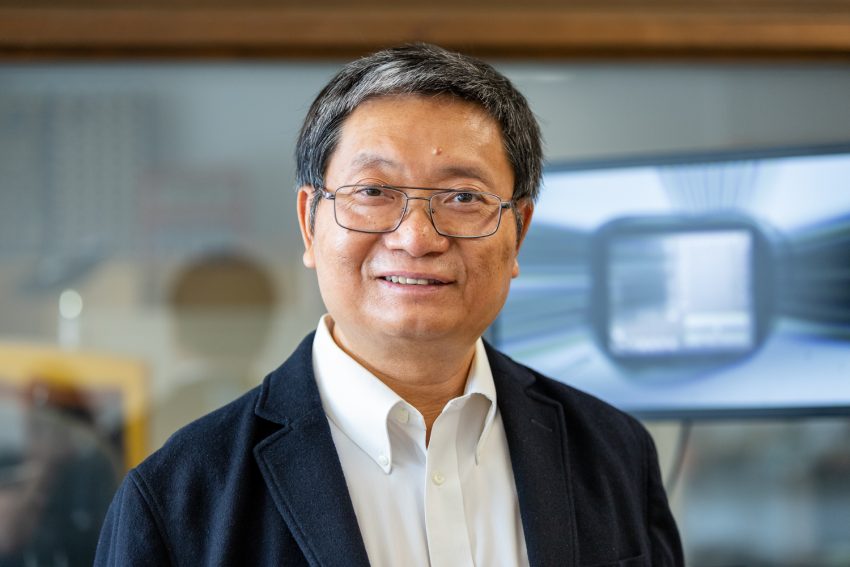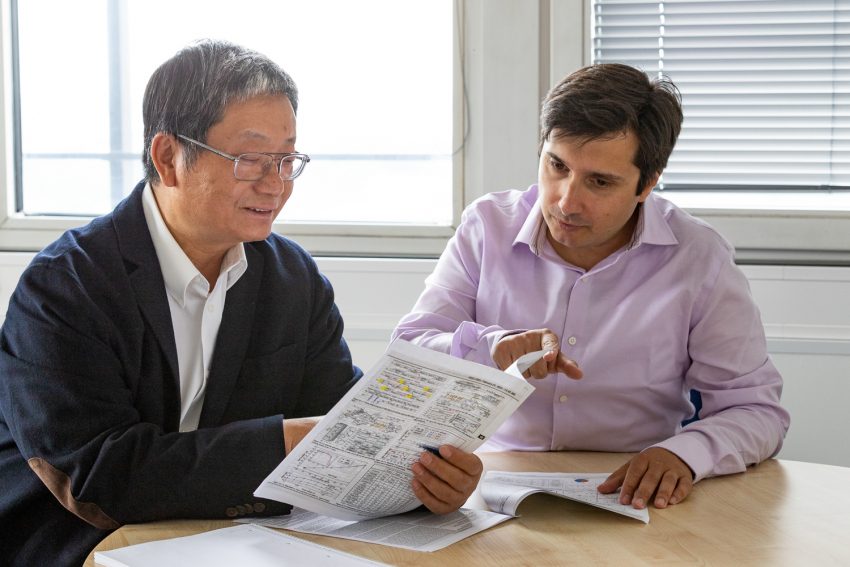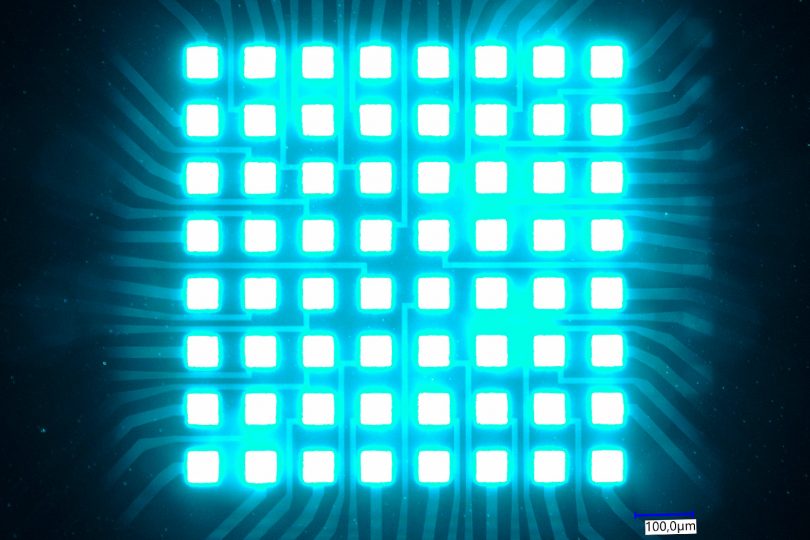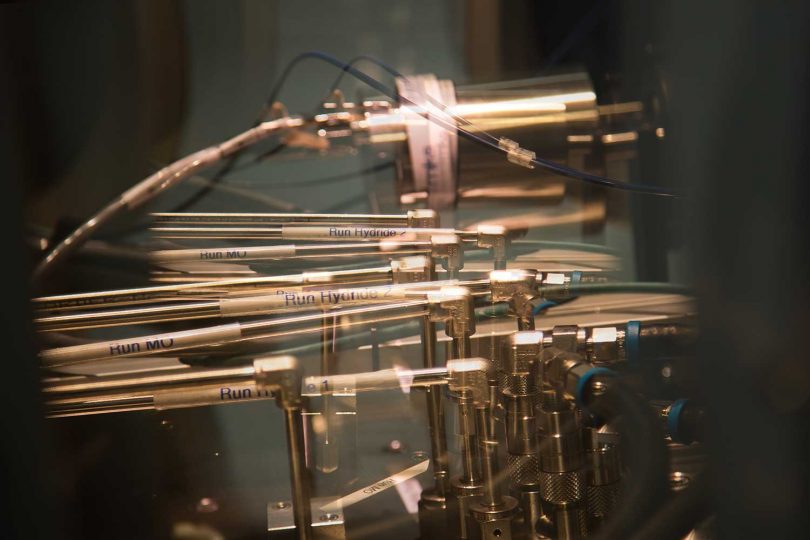On sabbatical in Braunschweig’s microelectronics US Professor Fa Foster Dai visits TU Braunschweig
When Bell lab researchers invented the first transistors over 70 years ago, they could not have imagined the profound impact this technology would generate on our way of living. Today, billions of transistors on integrated circuits employed in tools like computers and smartphones are a part of our daily lives. For Fa Foster Dai, Chair Professor from Auburn University in Alabama (USA), it is clearly one of the most important inventions in human history. Dai, who is an expert in chip technology, is currently on sabbatical at the TU Braunschweig for two and a half months. At the invitation of Professor Vadim Issakov, he is contributing his expertise at the Institute for CMOS Design.

Professor Fa Foster Dai from Auburn University in Alabama (USA) at the Institute for CMOS Design at TU Braunschweig. Picture credits: Kristina Rottig/TU Braunschweig
It is now ten years ago that the two chip enthusiasts got to know one another. Dai was at that time already firmly established as a full professor with research focused on integrated circuit design for wireless and satellite communication networks at Auburn University, while Vadim Issakov was pursuing a career as a chip developer at the prominent semiconductor company Intel. Together with some like-minded people, they organized international conferences on integrated circuits. Dai was, and continues to be, very impressed by Vadim’s talks delivered at international conferences. When they met again in person last year, Dai asked Vadim about his current projects at TU Braunschweig. The answer ‘quantum computing‘ alone fascinated Dai so much that he tailored his sabbatical plans to include Braunschweig. Dai wanted to not only get to know the projects, but also have an opportunity to work with the team developing them.
Tailor-made chips for all cases
There are many ways to build a quantum computer. Today, quantum computers are developed based on trapped ions in the Quantum Valley Lower Saxony (QVLS). While these computers may function in a completely different mode than current devices, they still require support from classical integrated circuits and quite often these circuits exhibit very specific capabilities. For example, they need chips that can operate close to absolute zero temperature and emit as little heat as possible in the process. As an example, the QLVS quantum computer requires chips that can control the ion energy state and move the trapped ions with precise microwave signals in a cryogenic environment. It is here that the American Visiting Professor can share his expertise on projects at the Institute for CMOS Design with chips that can work for years in cold space.
Technically, Professor Dai also brings his expertise in data converters to Braunschweig. These devices, for example, can convert analogue signals produced by a microphone to digital format for storage on an audio CD. This technology, within fields of science, in which analog measurement signals such as wireless communication and sensor signals are converted to digital data, is known as analog-to-digital conversion. As the technical demands on chip-based devices grow, so do the design challenges. Although the Braunschweig team, led by Professor Vadim Issakov, has intensively studied Dai’s publications in the past, the team now has the opportunity to work directly with him in the laboratory. The benefits of this cooperation extend not only to quantum computing but projects such as the future mobile phone standard 6G, autonomous vehicle radar and biomedical sensors.

Professor Fa Foster Dai and Professor Vadim Issakov are working together on integrated circuits. Picture credits: Kristina Rottig/TU Braunschweig
A step towards more cooperation
The variety of topics at the Institute for CMOS Design clearly indicates to outsiders why chip design is considered key to the forefront of technology development. For this visiting professor, it is almost a microelectronics Disneyland. “Vadim’s team not only pursues a variety of exciting projects, but the designs are simply innovative with promising results. Accordingly, I really enjoy every moment here working with a talented team led by Professor Issakov at TU Braunschweig.”
Moreover, Issakov and Dai plan to carry this momentum forward for the long term. Dai believes his visit to TU Braunschweig is only the beginning of a long and fruitful cooperation between the two teams. The effort can certainly be expanded to the collaboration between two universities. Together, they are currently looking for suitable funding instruments so that their cooperation across national borders can accelerate. It is precisely this kind of cooperation that is essential to mastering the great challenges of microelectronics. By cooperating they can achieve more, and fortunately modern technology ensures that this can be done without being in the same place all the time.


